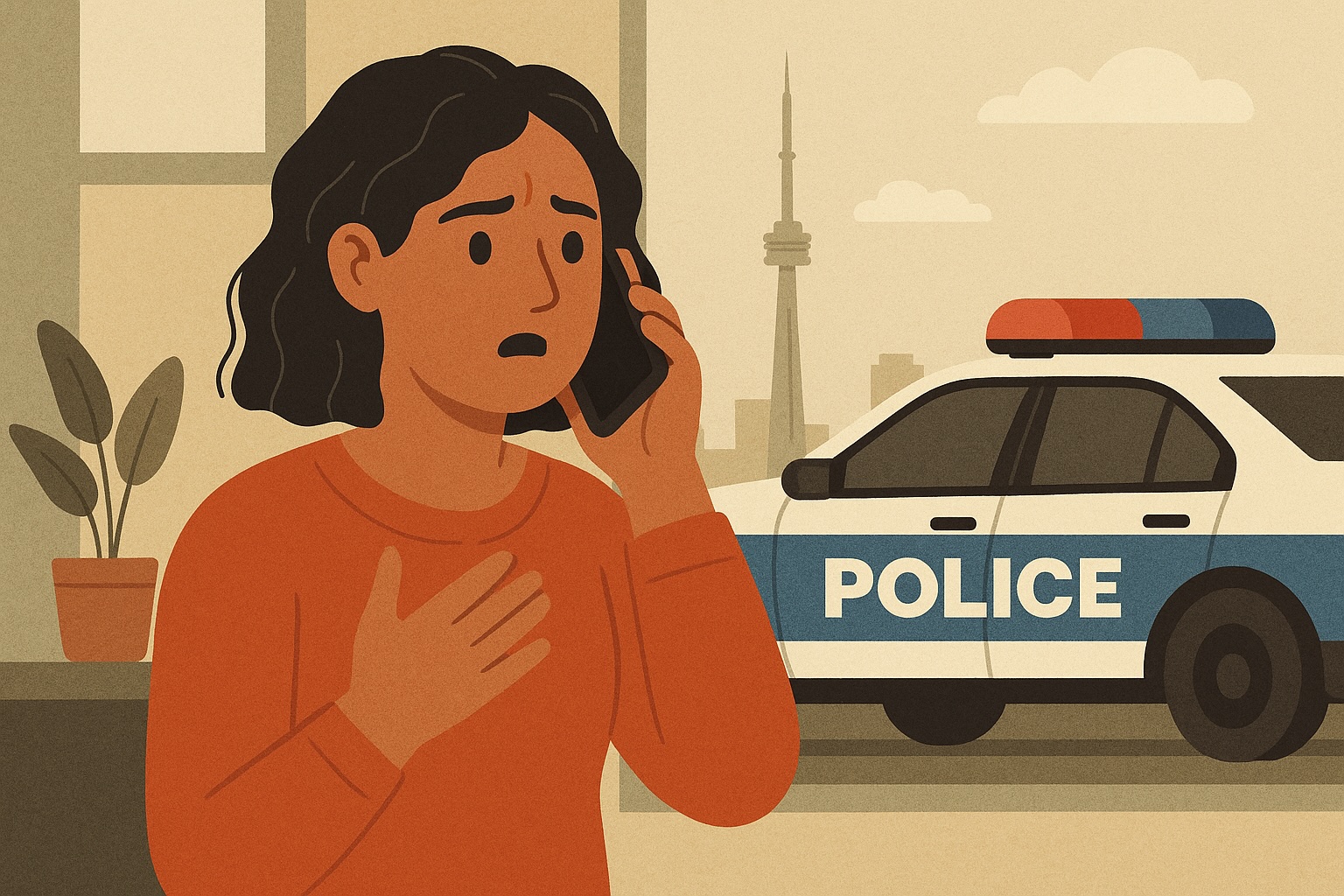“I’m Not a Citizen—Can I Still Call Police in Toronto?”
It's a question that can stop a survivor from making a life-saving call: If I'm not a citizen, will I be deported for contacting the police? This guide gives a clear answer for Toronto residents: Yes, you can and should call for help. Learn about the policies that protect you and where to find support.

For many newcomers, temporary workers, refugee claimants, or residents without status in Toronto, a terrifying question can arise in a moment of crisis: If I call the police for help, will they ask about my immigration status? Will I or my family be at risk of deportation?
This fear is real, and it is actively used by abusers to maintain control and silence their victims.
Let's provide the answer in the clearest possible terms.
Yes. You can, and you absolutely should, call the police in an emergency. Your right to safety in Toronto is universal, regardless of your immigration status.
This guide will explain the policies that protect you, clarify the roles of police and immigration officials, and point you to safe support services across the city.
The Most Important Rule: Toronto's "Access Without Fear" Policy
The City of Toronto is officially a "Sanctuary City." This means it has an "Access Without Fear" policy, which directs all city services—including the Toronto Police Service (TPS)—to provide access to everyone without fear of being asked about their immigration status.
When you call 911 because you are a victim of or a witness to a crime, the primary job of the police officer who responds is to ensure public safety. Their focus is on the emergency at hand, not your immigration papers. The TPS policy specifically directs officers not to inquire about status in these situations.
Police vs. Immigration: They Are Separate Agencies
It is crucial to understand that the police and immigration enforcement are two different bodies with different jobs.
- Toronto Police Service (TPS): A municipal police force. Their mandate is to respond to emergencies, investigate local crimes, and keep the peace in the City of Toronto.
- Canada Border Services Agency (CBSA): A federal agency. Their mandate is to manage Canada's borders and enforce immigration laws.
A TPS officer is not a CBSA immigration officer. When you call for help with a domestic violence situation, you are calling the Toronto Police, not the border agency.
When Could Immigration Status Become an Issue?
To be completely transparent, there are limited exceptions where police and immigration systems can intersect.
- If you are arrested for a serious crime: If any person—citizen or not—is arrested and fingerprinted for a serious criminal offense, that information can be shared with federal databases, which may alert immigration authorities.
- If there is an outstanding Canada-wide immigration warrant: If a person already has a warrant for their arrest issued by the CBSA, and they come into contact with police for any reason, a background check may reveal that warrant.
The crucial takeaway: These are specific exceptions. For a survivor calling for help from a dangerous situation, the "Access Without Fear" policy is designed to protect them. The risk of staying in a violent home is almost always far greater than the risk of calling for help.
Safe Havens: Where to Get Help Without Fear
If you are still afraid to contact the police, there are many organizations in Toronto committed to providing confidential support, regardless of your status.
- Community Health Centres (CHCs): Centres like Access Alliance Multicultural Health and Community Services and Women's Health in Woman's Hands CHC are built on a foundation of providing care to all, and are safe places to get medical attention and counselling.
- Specialized Legal Clinics:
- Barbra Schlifer Commemorative Clinic: Provides free, integrated legal help for women survivors of violence, with deep expertise in the intersection of family law, criminal law, and immigration law.
- Community Legal Clinics: Many clinics across the city (like Parkdale or Jane Finch) can provide free and confidential immigration advice.
- Confidential Helplines:
- Assaulted Women's Helpline (416-863-0511): This 24/7 line provides crisis support, safety planning, and referrals to shelters. They will not ask about your immigration status.
Your immigration status should never be a barrier to your safety. Policies and services across Toronto are in place to ensure that when you call for help, you get it.
Save these numbers in your phone:
- 911: For any emergency where you feel you are in immediate danger.
- Assaulted Women's Helpline (416-863-0511): For 24/7 confidential support and advice.
You have the right to be safe. Please make the call.
